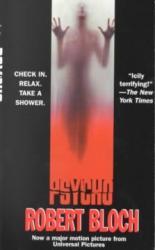
Once again, I find that the source material on which a famous movie is based is equally as good and equally as famous. What strikes me as interesting is that the quick turn on some of these literary masterpieces from page to screen has largely remained unchanged. Gone with the Wind only took three years before its film debut, The Martian took four years, and Psycho only took one. Clearly, these stories are practically screaming to be made into movies, and most have done quite well as the cultural icons of their age.
Of course, having already seen the film on which this book was based, I was well aware of the twist ending. Nevertheless, reading through this book was almost enhanced by this a priori knowledge as one would probably not have guessed the twist if they were reading it for the very first time. There are just little hints here and there that something is off, but it’s not until close to the end that we find out that everything is not as it initially seemed. Even the visuals provided in the film version helped to aid my imagination in establishing the setting and characters.
And yet, as there always is, there are some differences in the book that did not make it into the movie. I wonder if Norman Bates was made a lot slimmer in the film partly due to Hitchcock’s portly frame. In the book, his overweight body adds a layer to the character (both literally and metaphorically) which helps flesh out (Har har. OK, I’ll stop) more of the explanations as to why Bates ended up this way. Much like One Flew Over the Cuckoo’s Nest, being able to get into the mind of Norman Bates was a fascinating examination of someone with a severe mental illness.
A fantastic read equally on par with the Hitchcock classic, I give Psycho 5.0 stars out of 5.
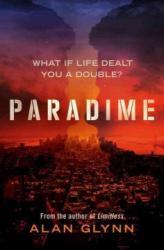
The first time I was introduced to Alan Glynn’s writing was through the
film, Limitless (2011), which itself was based off his first novel, The Dark
Fields. While I enjoyed the film for its visuals, what really struck me as
interesting was the storytelling and characters Glynn created. Now fifteen
years after his first standalone novel, Paradime continues to show Glynn’s
talent in creating engaging plots and characters. Since I really enjoyed this
book, I will do my best to review it without spoiling it for anyone.
At its most simple level, Paradime is a modernized retelling of Mark
Twain’s The Prince and the Pauper, or at least half of it anyway. Told from
the perspective of an out-of-work and out-of-luck cook, Danny Lynch, the
pacing of each of the three acts is steady and intense. Even if some of
Danny’s vocabulary seems a little advanced at times, he is the perfect
“everyman” to convey his peculiar circumstances to the reader. Those
familiar with Limitless will probably see many parallels between the two
stories, with the main exception being how the story ends for Danny.
Glynn’s writing style is very natural and easy to read in this modern
thriller. Each chapter left me wanting to read more and I found myself having
difficulty stopping because the pull of the plot was so intense. I also
appreciated the ability of Glynn to tie things up in an almost unexpectedly
expected way so that no detail in this book was left unused. While this may
have been the first time I’ve read anything by Alan Glynn, I am now
certainly a fan and will have to go back and pick up his other books to read.
A fast-paced and thrilling read, I give Paradime 5.0 stars out of 5.
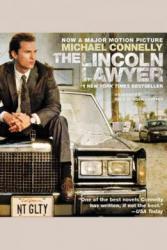
While I saw the movie before listening to the audiobook, I must say that I
still really enjoy the main character. He’s one of those guys you love to
hate, but he’s trying so hard to do the right thing, even if it means
defending a scumbag who deserves a lot worse. Of course, since I had seen the
movie already, I had an idea how it was going to end, but couldn’t remember
the specifics. Perhaps that’s a measure of a great crime drama: all the
misdirection makes it difficult to know “whodunit”, allowing future
rereads to be enjoyable.
But, back to the main character, Mickey Haller, I think one of the reasons
this book was a breeze to listen to was because the main character’s POV is
so well written. You can tell that he has some baggage from his father, which
is partly why he defends everyone, regardless if they’re guilty or not. The
fact that Haller knows his way around the legal system and uses it to his
advantage to even get the guilty an innocent ruling just shows that he takes
pride in his work, even if it labels him as someone who keeps the crime on
the streets.
The plus to this audiobook was also the narrator, who was awesome in bringing
all the different characters to life with his voice acting. Even if the story
is told from the point of view of the eponymous “Lincoln Lawyer,” there
are plenty of interesting people in this book, and each one certainly has a
different “sound” to them. It’s the attention to these details that
differentiates a narrator just reading a book to you and a voice actor who
can bring the events happening in the words he’s speaking to life.
A great start to an interesting crime drama series, I give The Lincoln Lawyer
4.0 stars out of 5.
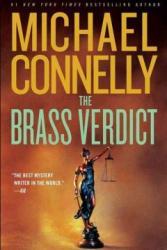
Another book, another trial for the Lincoln Lawyer. While I appreciated the
stand-alone nature of this book, I also liked that knowledge of the events in
the first book of this sub-series helped to provide context for the
challenges Mickey Haller now faces. The main case of this novel was pretty
predictable, especially if you read into the insinuation of the title. I
would have liked a little more attention on the side-case surrounding the
death of Haller’s lawyer colleague. It seemed to be more of a Harry Bosch
story, though, so I can understand why the focus was on Haller’s case.
Once again, Michael Connelly creates an easily readable series of events that
unfold in the courtroom. Some twists at the end were exciting developments
but were definitely easily guessed if the reader was paying attention.
There’s almost a guilty pleasure in following Haller along as he embeds
that reasonable doubt into the jury’s minds. Something about the justice
system being used to make absolutely sure someone is innocent or guilty just
sits right, even if it’s in the defense of a completely unlikeable
character. This character’s final fate was equally as satisfying, even if
it wasn’t in court.
As noted above, my only qualm with the novel was that it seemed to be only
one side of the story. While we followed Mickey Haller, there was another
story unfolding with Harry Bosch that probably could have filled up another
volume. There was a lot that Bosch did behind the scenes that made his story
also seem quite interesting, even if it wasn’t expressed in these pages.
The connection between these two characters at the end of the book was also
nice, and I am curious how often Bosch will come back into play in future
Mickey Haller books.
A straightforward courtroom drama with predictable twists, I give The Brass
Verdict 3.5 stars out of 5.
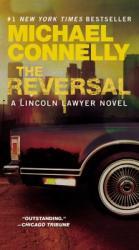
After two novels of Mickey Haller defending guilty scumbags, Michael Connelly
changes it up with The Reversal. Not only does the title refer to the
reversal of a 24-year old conviction, but also to the main character’s swap
over to the prosecution. While there seems to have been a book between this
one and The Brass Verdict, I have a feeling it was mostly about Harry Bosch,
since the hinted details in this book give me a good idea of what happened
and it didn’t change the last reference point of Mickey Haller.
Now that these two main characters were tied together in this case, one of
the issues I had with this book was how often it switched between first and
third person POVs. Perhaps I was too used to the story being told from Mickey
Haller’s perspective and there was so much that happened outside of his
direct involvement that it was necessary. However, there were times where
Haller was present in the scene and it seemed to switch between the two POVs
somewhat inconsistently, adding to my confusion as to who was speaking. I
only hope the next book in the series focuses more on Haller than splitting
the time between him and Bosch.
Furthermore, while I did appreciate the change of Haller being a part of the
prosecution team with his ex-wife, the story unfolded much in the same way
the others had. Most of the trial was pretty predictable with the twists
being easily recognized well before they were revealed. The unpredictable
ending is almost part of the template now, so even though it was an exciting
development, I had come to expect it.
Another Michael Connelly standard with a few changes to make it interesting,
I give The Reversal 3.5 stars out of 5.
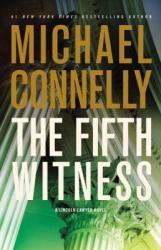
In the fourth installment of The Lincoln Lawyer series, The Fifth Witness
follows Mickey Haller as he navigates another murder trial. This time, the
real scenario of the foreclosure crisis is brought in to help set the stage
for the trial. Using a historical event like this helped to bring the story
together in a way that felt more real and relatable than the previous entries
in the series. Most Americans I know who were affected by the housing market
crash would certainly be entertained by this story of corruption and
underhanded dealings, if for no other reason than to justify how screwed up
the system is.
Gone from this part of the series is detective Harry Bosch, who I felt
distracted from the main storyline centering around Mickey Haller and his
court battle in the previous two books of this series. This time, it’s all
Mickey. What helped to make this book stand out from the rest was the amount
of soul-searching and character development our favorite defense lawyer does
throughout the events unfolding around this trial. Because of his work as a
defense attorney, it was easy for him to become cynical, thus making his
aloof attitude more entertaining than endearing. This time around, he starts
to become self-aware and sees that his life isn’t heading in the direction
he wants.
I appreciated the slight bit of meta-humor in this book, not only in its
title but considering it came out around the same time as The Lincoln Lawyer
(2011) movie. And while some of the numerous “sudden evidence” events for
the trial was a bit of a cheap way to add twists to the story, Connelly
expertly hid the true twist ending until the final moments of the book,
something that was somewhat missing from earlier parts of the series. With an
interesting nod toward some future storylines, I felt The Fifth Witness is
the strongest entry in the series so far.
A great courtroom drama pulled straight from the housing crisis, I give The
Fifth Witness 4.0 stars out of 5.
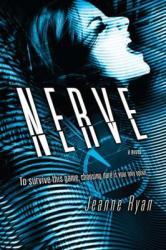
Nerve is about a coward named Vee who decides to try this game online called NERVE. In this mysterious game, you can either be a player or a watcher.
Watchers must pay money to watch, and players get paid to do dares. Vee thinks this is a stupid idea, but then begins to wonder if it actually a fun thing to do. She decides to try it out. One challenge leads to another, and the dares begin to become deadly. Should Vee risk her life for a good prize, or will she lose NERVE?
This is a great book for anyone obsessed with online games, or thrills in general. I definitely recommend this book for any thrill seekers.
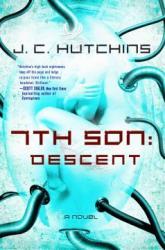
I managed to find this book on a table full of free books at a convention some time ago and tucked it away in my “to read” pile. Now that I’ve finished most of the Goodreads giveaways I have received, I decided to give it a read. With nothing other than the title (which doesn’t tell me much) and the cover (which gives a little more information), I honestly didn’t know what to expect from this book. Since it was on a table of free books, I didn’t have much expectation for it, but boy did it ever deliver!
With a fantastically engaging idea and a blisteringly fast execution, 7th Son: Descent pulled me in from the get-go and wouldn’t let go. Action! Espionage! Science! Without ever becoming too mired in the details (but providing enough to have the plot make sense), this book successfully made a story about cloning that wasn’t trite or cliché. The ideas and characters contained within were unquestionably too big for this book since it introduced many subplots but never concluded them. Still, there was enough of a conclusion to this book to leave me satisfied without it being too much of a cliffhanger.
My one qualm with 7th Son: Descent, other than the brief, horrifying moment of implied violence involving a pneumatic socket wrench, was that there were almost too many characters. I understand that there needed to be a well-rounded group of clones, but I honestly couldn’t tell you anything significant or memorable about at least two of them. I mean, you have the free-spirited musician, the conspiracy-nut hacker, the gay marine, the priest, and the egomaniac criminal psychologist, but I guess the U.N. employee and the other guy (I can’t even remember what he did) didn’t stand out to me. Maybe they play a bigger role in the later books, but they seemed undeveloped in this one.
An excellent, action-packed science fiction book that left me wanting more, I give 7th Son: Descent 4.5 stars out of 5.
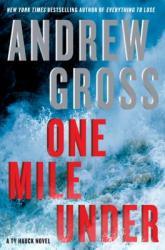
Review: The book, One Mile Under, is about a girl, who is a white water rafting guide living in Aspen, Colorado, who finds a body on one of her rafting trips. Throughout the book the girl, with some help from a few friends, tries to prove that the death of the man was no river accident while also trying to avoid being murdered herself. I chose this book because I though the title seemed interesting, and I had read some of the author's other books and liked them. The thing I liked most about this book is that it is a murder mystery, and it is very suspenseful throughout most of the book.
However, the book seemed to drag on a lot towards the end, and most of the answers to the mystery are revealed about two-thirds through the book which makes the book feel long. This book was surprising in the beginning, but by the end everything seemed pretty predictable. Overall, it was a really good book, and I would suggest reading it if you like suspenseful murder mysteries.
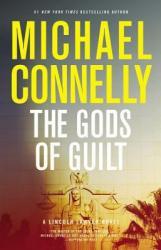
Despite The Fifth Witness leaving the door open to an interesting diversion from the same defense lawyer story we’ve come to know and love from Michael Connelly’s Mickey Haller, The Gods of Guilt puts Haller back in the hot seat as the counsel protecting a digital pimp from a murder conviction. Some of the depth of the Haller character developed in previous books in this series was eliminated after his unsuccessful District Attorney run, but there was still enough humanity in him to advance his story. After all, his coping mechanisms and needs are some of what we all deal with in our own lives.
While I have come to expect a twist ending from Connelly, it was surprisingly missing from this book. For once, Haller’s client wasn’t as bad as everyone made him out to be, and that’s saying something for the digital pimp of Andre La Cosse. Perhaps that’s what made this story a little more uncomfortable than the others: the seedy underbelly of the adult entertainment industry is harder to relate to than simple foreclosures. Still, I can’t help but think that the same strawman tactics that Haller used in this case were quite similar to some of his other defense cases.
All this being said, Connelly is still a master of his craft. The pacing and advancement in the plot was excellent and the peril Haller found himself in after getting too deep into some serious side-investigations helped to make a rather standard book in the series an entertaining read, nonetheless. As was the case in The Fifth Witness, I appreciated the meta nature of this universe where the Lincoln Lawyer movie was a real part of Haller’s life.
Yet another predictable entry in the Mickey Haller series, I give The Gods of Guilt 3.0 stars out of 5.
For more reviews of books and movies like this, please visit www.benjamin-m-weilert.com
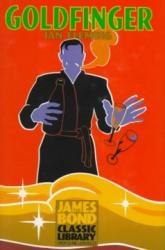
For many years, I was aware that the James Bond series of books did not follow the same order as their respective films. Given the action/adventure spy thriller genre these books were written in, it is possible to mix them around and still have a good understanding of what’s going on, even if some of the references made within the novels could only be understood by having read the previous books in the series. In some respects, it is disappointing that the film franchise didn’t capitalize on a continuous narrative that the books provided.
If the stories are out of order, then it ‘s hard to build up the constant battle between James Bond and the Soviet spy agency, SMERSH. Fortunately, since I had read a few of the first books in the James Bond series, I could appreciate Auric Goldfinger’s connection to the organization. That being said, I seemed to have jumped ahead a bit and missed what happened on the Moonraker mission, even if I have a loose idea/remembrance of what happened from its film version. Regardless, these minor references didn’t affect the plot of Goldfinger that much.
What I do find interesting with this book is the differences between it and the movie. There’s no laser threatening to cut Bond in half, there are more characters involved in the heist, and the actual heist itself has a slightly different objective. It is weird reading about the technology Bond uses and its references to “vacuum tubes” when the film makes all his tech seem futuristic. I do find it interesting how the author won’t outright swear (replacing the choice word with a “blank”) but includes two lesbian characters and a plethora of other, sexual inferences.
A fantastic story in the James Bond franchise, I give Goldfinger 4.0 stars out of 5.
For more reviews of books and movies like this, please visit www.benjamin-m-weilert.com
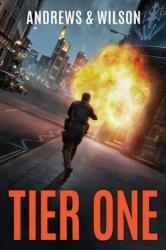
***THIS BOOK WAS RECEIVED FROM A GOODREADS GIVEAWAY***
While violence, action, and excitement fill stories involving tactical military operations, one element of these stories that adds realism can also alienate unknowledgeable readers: jargon. I am fortunate to know enough of the terms and acronyms from my day job, but if a story like this needs an acronym and definitions list in the back, I can see it being difficult to get into for the casual reader. They might be able to push through it and make assumptions on what’s happening, but following the discussions helps the reader to understand the level of importance for each action.
Of course, in this post-9/11 world, Islam has now taken the role of stereotypical “bad guy” that used to be held by the Nazis. I’m almost surprised by how many antagonists are Muslim in the books I read. From apocalyptic stories like Dark Ages: 2020 to science fiction novels like The Starchild Compact, these characters are always the extremist jihad warrior. Without understanding the culture in a more informed manner, I usually have to roll my eyes at the clearly stereotypical (and practically racist) representations of these characters. Tier One is no different in its portrayal of Muslims, thus resulting in rather one-dimensional antagonists.
Even though the action sequences were well written, and most of the events were tied together quite well, I only had a few qualms with the plot. The largest of these minor qualms was the “twist” at the end, which involved a character who appeared early on and was quickly forgotten. They didn’t even have much of an influence on what happened, so when the twist occurred, my only reaction was, “Huh?” Then again, I also had trouble relating to the “meathead” Tier One operator as well, but that’s probably because I related more to the character with synesthesia.
An exciting story heavily ensconced in military jargon, I give Tier One 3.5 stars out of 5.
For more reviews of books and movies like this, please visit www.benjamin-m-weilert.com
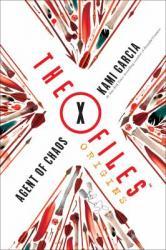
When Fox Mulder was just a kid, his little sister was kidnapped while he was babysitting her. That event has haunted him and his family ever since. So, when children start to go missing and then turn up dead from what appears to be a ritualistic serial killer, Mulder knows that he has to do something.
While I like the X-files, I'm certainly not the world's greatest fan - I've probably seen around 1/2 of the episodes, and I haven't watched the reboot. However, this book jumped out at me as I was perusing the stacks, and I'm glad it did. In fact, if you are just a fan of mysteries and/or the paranormal, this book will totally meet your needs. You can go into this without knowing anything about Mulder and the TV show, and you'll still have a great reading experience. If you are an avid fan of the show, there are several "easter eggs", cameos and cute references throughout the book (the smoking man shows up in the first chapter!). Also, it's got some entertaining historical fiction elements as the book is set in 1979, and that is very much reflected in the music and technology.
Garcia does a great job with the character development. Mulder quickly teams up with two other "genuis" types, and this book could've quickly devolved into some variation of "three teen geniuses solve a crime caper" a la a number of middle grade/YA books out there, but Garcia fleshed the characters out to the point that this pitfall was, for the most part, avoided. Mulder is, understandably, obsessed with finding his sister, and his parents are separated. His best friend, Gimble (a D&D name), has a father who is so enmeshed into conspiracy theories that he's been fired from the Air Force (he may or may not be an influence to young Mulder). His other best friend, also a love interest, was not as well developed, she was easily the weakest character, and I could've done without her and the romance. The story itself was a well done serial killer mystery, though the end felt a little abrupt with a ton of loose strings. The mystery is only mostly resolved, so I'm assuming there will be a sequel.
Anyone looking for a decent mystery with good characters, look no further. The X-files stuff is just icing on what is an already pretty tasty cake. I wanted to believe (I couldn't help myself), and this book didn't let me down. 3.5 stars.
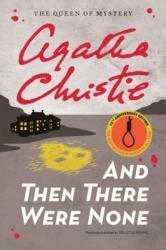
I often have a hard time with mysteries, but And Then There Were None was classic, suspenseful and just plain enjoyable. The audiobook version was especially entertaining, perhaps because the original story was written as a play under an alternate (and controversial) title. The characters feel like they were the predecessors to the characters found in the game Clue. They are equally sinister and sympathetic. I am particularly intrigued with the connecting reason all of them have been brought to the island and the psychological effects of that reason. To the very end Agatha Christie teases your deductive reasoning skills. You always feel like you are on the cusp of finding out who the killer is, and then you're wrong! I was completely at a loss by the end. Thanks goodness for the epilogue. This is a timeless mystery classic.
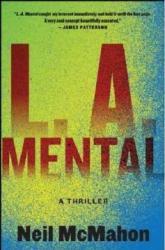
In L.A. Mental, after a freak incident with his brother Nick, Tom Crandall investigates his bizarre breakdown and discovers something gigantic.
He may be in over his head. I really liked the mystery that kept me intrigued throughout the novel. I didn't like how confusing it was, although every few chapters the book explains what is going on and helps you understand. I pick this book because I wanted something to keep me on the end of my chair, and while I was mildly interested this wasn't a book I just could not put down.
Mostly this book was completely predictable but it did throw in a few surprising twist and turns. I could partly relate to Tom because i don't have the best relationship with my siblings just like him. This book was an okay book definitely not my favorite but I would recommend.
Reviewer Grade: 9

In Suicide Notes from Beautiful Girls by Lynn Weingarton, June, a high school junior, investigates the mysterious "suicide" of her ex-best friend, Delia.
Throughout the book she discovers new mysteries and experiences betrayal and numbness. Her character develops quickly to adapt to what events occur. I liked how the book connects with June's feelings about the events, and describes them in detail, like any good book should. I did not like how the author only included two point of views, I would like to read what the other characters thought about and how they reacted in their thoughts. I pick this book because I wanted a mystery novel and the title as well as the cover piqued my interest immediately. Suicide note from beautiful girls had surprising moments, that made me think 'wow, I can't believe that just happened' but it had moments where I could predict what was going to happen.
I could semi relate to June, she as well as I have lost a best friend. I would say this isn't the best book I've read this year, but it is up there with a good story plot.
Reviewer Grade: 9
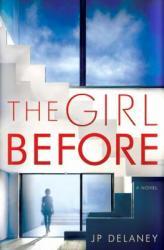
Would you like to read a book about psychopathic men exploiting vulnerable women? Well then, do I have the book for you!
After having a stillborn child, Jane needs a new start. What better way to start over than in a new apartment? One Folgate Street has weird rules to be sure, but the minimalist life style required by the owner actually sounds like the perfect way to reinvent herself. But after she moves in, Jane learns that a previous tenant, Emma Matthews, was murdered in the apartment. As Jane learns more about Emma, she finds that they have much in common - and that she might be the apartment's next victim. The Girl Before goes back and forth between Jane and Emma's stories.
This was...not good. The beginning of the book was intriguing, and until about 1/3 of the way through, I was thinking it'd be a 2-3 star read for me. And then, like a conversation with a stranger or a first date, the book took an unfortunate turn. This was, sadly, to be the first of many unfortunate turns. Ultimately, I finished the book as it truly is an easy read - there was almost no imagery or description, you spend most of the time in the main characters' heads or watching them do incredibly stupid things (have these women never heard of a hotel?). Oh, and as is often the case in these domestic thrillers, the characters were all extremely unlikable.
This genre is pretty hit or miss for me (for example, I liked Gone Girl but HATED Girl on the Train), and The Girl Before was no exception - I found it to be kind of terrible. It's apparently being made into a movie, and I think with some plot/character changes, it may be more successful in that format. Stay away from the book unless you just can't get enough of psychological thrillers. 1 star - I did not like it.
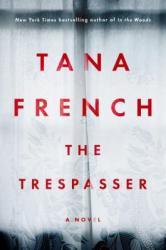
In the early hours of the morning, a man places a phone call to the local police station reporting that a woman has fallen down and hit her head in her living room. He asks for an ambulance to be sent but hangs up before the officer receiving the call can ask any more questions. When the first responders arrive at the scene, they find a young woman lying against the fireplace, dead. Junior Detectives Antoinette Conway and Stephen Moran are assigned to the case, but as they dig into the facts they start to suspect that there’s more to it than a simple domestic dispute. Try as they might, though, every new lead seems to dry up when they look into it. And it isn’t just the case that’s causing problems; everything seems to be going wrong in Conway’s life. She’s being relentlessly hazed by the other detectives on the squad; her relationship with her friends is deteriorating between the long hours and her own depression; and no matter how high their clearance rate is, neither she nor Steve are having any decent cases thrown their way. Conway is tough as nails and dedicated to her job, but the animosity of the rest of the squad and the constant scut work are starting to make her doubt her career path. This case seems like their best chance to get back on track and finally win some respect -- provided they can prove that there’s more to it than meets the eye.
This is the most recent entry in Tana French's Dublin Murder Squad series. If you're not familiar with the series, I'll say that, while each book can be read as a stand-alone without issue, there are some recurring characters that make it rewarding to read them in order. The lead in this book, Antoinette Conway, was first introduced in the preceding book, The Secret Place, and her partner, Steve, started out as a minor character in Broken Harbor. All of French’s books are excellent character portraits, so it’s rewarding to get to see the same individuals first from an outside perspective and then from within their own head, but you won’t miss anything plot-wise by skipping them. The Trespasser centers around the idea of fantasy: the stories we tell ourselves to make ourselves feel better, the stories we tell to other people to make them act the way we want them to, and the devastating effects it can have when those fantasies finally collapse. That applies as much to the detectives as it does to the victim, and so we get a nice mix of personal drama with our protagonists and the more straightforward investigation of the murder. I loved Conway as a character in The Secret Place, so I enjoyed getting to see things from her own perspective in this book. What I like about French’s books is that they have more going on than just the ‘whodunnit’. The mystery is always interesting to me, but what really shines is her portrayal of the characters and the setting: Dublin really comes alive for you in her books, and the characters feel like they could walk off the page.
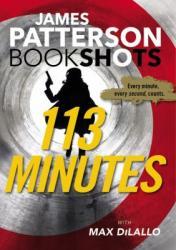
I was very curious to try one of James Patterson's Bookshots. He called them a pulse pounding thriller from beginning to end. I will say it lived up to the billing! I was immediately into the story and kept wondering what was going to happen next. 113 Minutes started off with a teenage boy dying from an overdose from crystal meth. Then there is a bank robbery, a heist of over a million dollars at a country club, and then a shootout with the Feds! Whew!!! I really enjoyed this one and can't wait to read more Bookshots!
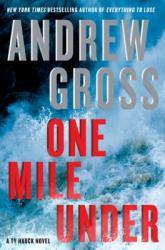
Colorado is the setting for best-selling author Andrew Gross’ thriller, One Mile Under. From the Roaring Fork River, which starts at the Continental Divide and runs through Aspen to Glenwood Springs, to the state’s eastern plains, the central theme of the book is water.
After being summoned by his god-daughter, a rafting guide, to investigate a suspicious white water kayaking death, security specialist Ty Hauch joins Danielle Whalen in search of clues to the fatality on the Roaring Fork.
The investigation leads to Weld County, where water is every bit as important to farmers and ranchers as it is to the outdoor recreation industry in the mountains, and there is one more player in this adventure - the oil and gas industry. As Ty and Dani soon find out, extracting ore from far beneath the earth’s surface involves water…and lots of it.
The controversial process is commonly known as “fracking”, an issue that is a hot topic in Colorado today. One Mile Under is fast-paced, educational and a really good read.


